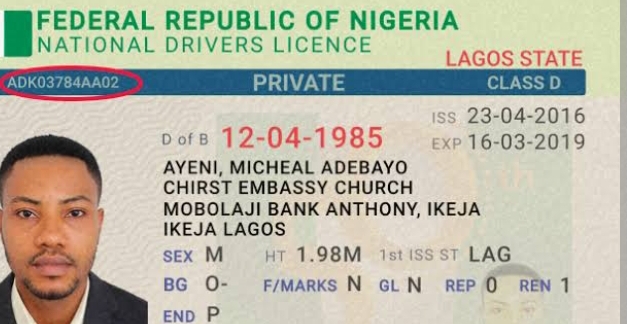How To Apply For A Driver’s License In Nigeria
This article will provide you with an overview of the process and requirements involved in applying for a driver’s license in Nigeria. It is essential to familiarize yourself with the necessary steps and documents to ensure a smooth and successful application.
The Federal Road Safety Corps (FRSC) is the government agency responsible for issuing driver’s licenses in Nigeria. They have established a standardized procedure to ensure that all applicants meet the necessary qualifications and possess the required driving skills and knowledge
Table of Contents:
1. Introduction
2. Eligibility Criteria
3. Required Documents
4. Application Process
5. Written Test and Learner’s Permit
6. Driving Test
7. License Issuance
8. Renewal and Replacement
9. Conclusion
1. Introduction
Obtaining a driver’s license is an essential step for anyone looking to legally operate a motor vehicle in Nigeria. The process involves meeting certain eligibility criteria, submitting the required documents, and successfully completing a series of tests. This article will guide you through the step-by-step process of applying for a driver’s license in Nigeria.
2. Eligibility Criteria for a driver’s license in Nigeria.
Before applying for a driver’s license, ensure that you meet the following eligibility criteria:
Be at least 18 years of age for motorcycles and 21 years of age for other vehicles.
Possess a valid learner’s permit for a minimum of six months.
Be physically and mentally fit to drive.
Not have been convicted of any serious traffic offenses.
3. Required Documents
To apply for a driver’s license, you will need to gather the following documents:
Birth certificate or age declaration.
Valid national identification card (such as a National ID card or International Passport).
Proof of residence (utility bill, tenancy agreement, or other acceptable documents).
Medical certificate issued by an authorized medical practitioner.
Passport-sized photographs.
4. Application Process
To initiate the application process, follow these steps:
a. Visit the nearest Federal Road Safety Corps (FRSC) office or approved licensing center.
b. Obtain and complete the driver’s license application form.
c. Submit the completed form along with the required documents.
d. Pay the necessary application fees.
5. Written Test and Learner’s Permit
Once your application is accepted, you will need to:
a. Attend a computer-based test on road signs, traffic rules, and driving regulations.
b. Pass the written test to obtain a learner’s permit, which allows you to practice driving under supervision.
6. Driving Test
After obtaining a learner’s permit, you can schedule a driving test. Here’s what you should know:
a. The driving test is conducted by an examiner from the FRSC.
b. Demonstrate your ability to drive safely, follow traffic rules, and handle the vehicle.
c. Practice beforehand to ensure confidence and competence during the test.
7. License Issuance
Upon successfully completing the driving test, you will be issued a driver’s license. Here’s what you can expect:
a. The driver’s license will be issued by the FRSC.
b. It will contain your personal information, photograph, and signature.
c. Ensure that all the information is accurate before leaving the licensing center.
8. Renewal and Replacement
Driver’s licenses in Nigeria are valid for a specified period. To renew your license or apply for a replacement, follow these steps:
a. Visit the FRSC office or approved licensing center.
b. Complete the renewal or replacement application form.
c. Submit the form along with the necessary documents and fees.
d. Undergo any required tests or examinations.
9. Conclusion
Obtaining a driver’s license in Nigeria is a process that involves meeting eligibility criteria, submitting the required documents, and successfully passing written and driving tests. By following the steps outlined in this article, you can navigate the application process smoothly and ensure compliance with the regulations set by the Federal Road Safety Corps. Remember, driving responsibly and adhering to traffic rules are vital for ensuring your safety and the safety of others on the road.

